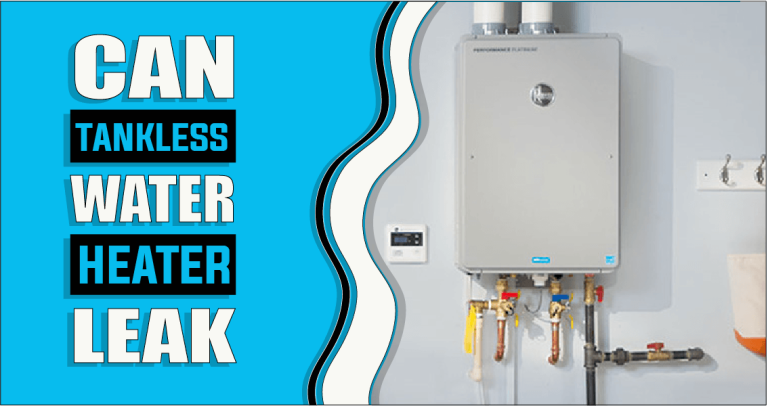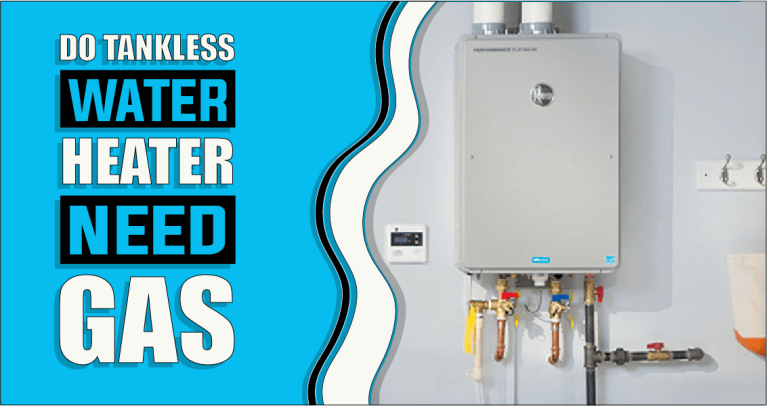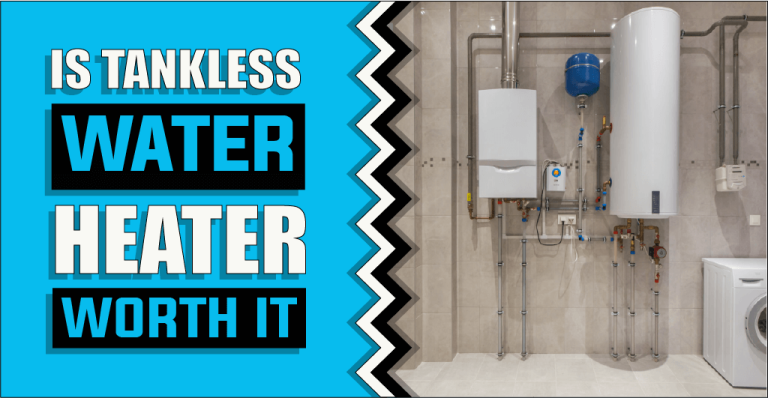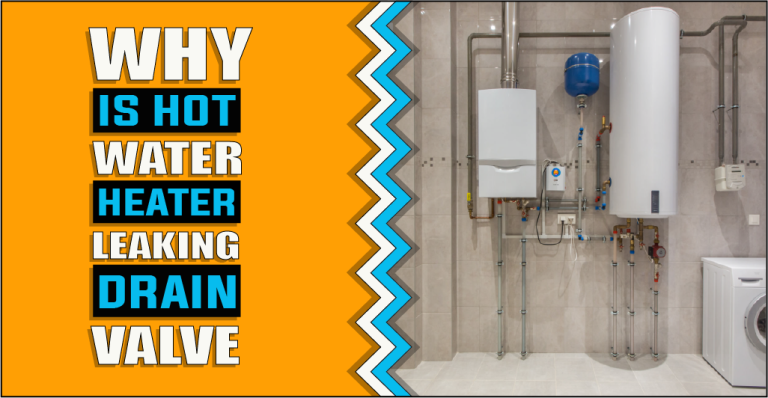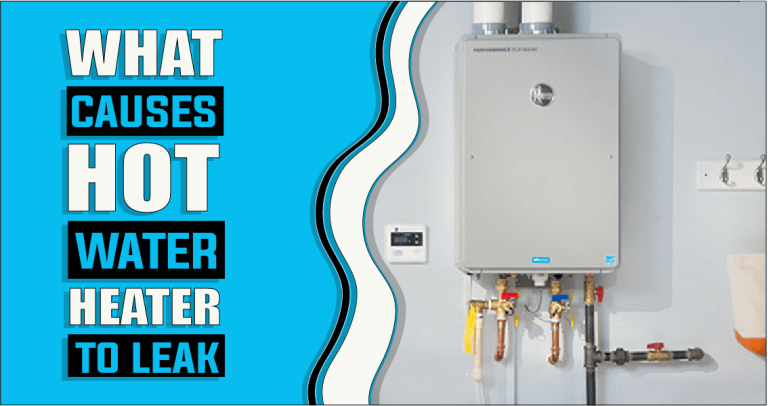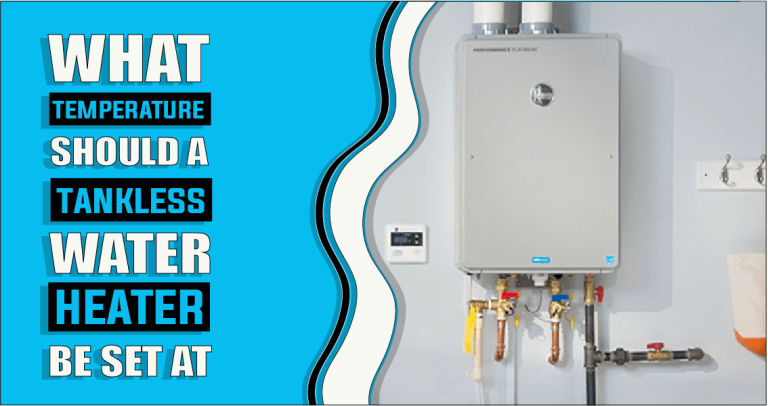Is A Tankless Water Heater Worth The Cost | Value Unveiled
Tankless water heaters have gained popularity recently due to their energy efficiency and space-saving benefits. But is a tankless water heater worth the cost? The answer depends on various factors. While tankless heaters can be more expensive to purchase and install than traditional storage tank models, they offer long-term savings through lower energy consumption. According to Consumer Reports, tankless water heaters can save around $70-80 annually.
Additionally, tankless heaters provide endless hot water, eliminating the need to wait for the tank to refill. However, it’s essential to consider your household’s specific needs and usage patterns before deciding if a tankless water heater is worth the investment. Keep reading to explore more!
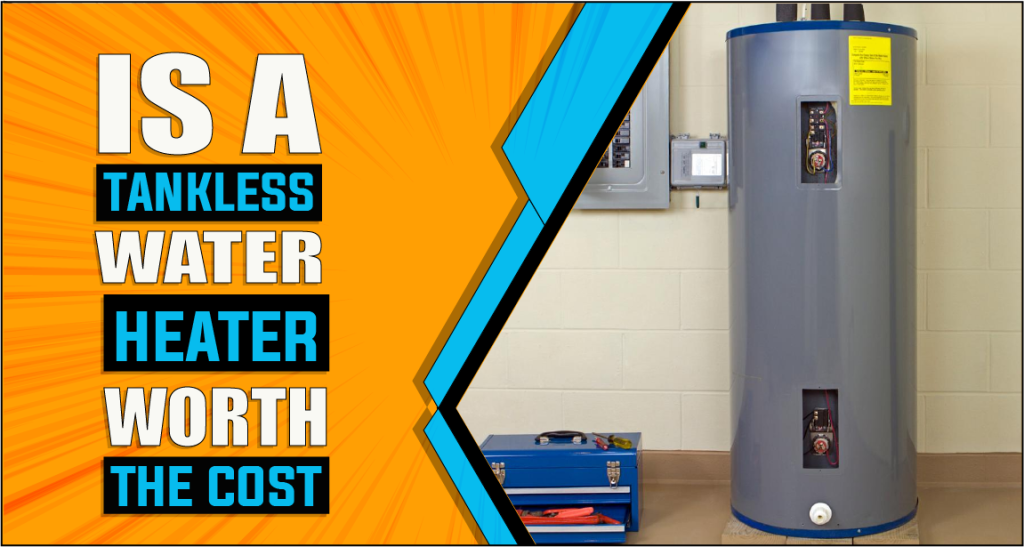
Is a tankless water heater worth the cost? Let’s Find Out!
Below, we’ve mentioned the top-notch perks of tankless water heaters that’ll help you determine whether or not you should give them a shot!
1: Space-saving design –
A space-saving design is a crucial feature that makes tankless water heaters an attractive option for homeowners with limited space. Unlike traditional storage tank models, tankless water heaters are significantly smaller and more compact.
The compact nature of tankless water heaters allows for flexible installation options. They can be mounted on walls, placed in tight corners, or even installed outdoors, freeing up valuable floor space in utility rooms or basements. This makes them ideal for smaller homes, apartments, or properties where space is at a premium.
In addition to their small footprint, tankless water heaters offer the advantage of eliminating the need for a bulky storage tank. Traditional water heaters can take up considerable space, especially in confined areas. By removing the need for a tank, tankless water heaters give homeowners more room for storage or other household appliances.
With their space-saving design, tankless water heaters offer a practical solution for those looking to maximize their living or working space. Whether it’s a small apartment or a compact utility room, tankless water heaters allow homeowners to enjoy the benefits of hot water without sacrificing valuable square footage.
2: Durability –
When it comes to the durability of tankless water heaters, they are known for their long lifespan and reliability. According to various sources, tankless water heaters can last 15 to 20 years with proper maintenance and operation.
The durability of tankless water heaters can be attributed to their design and construction. Unlike traditional storage tank models, tankless water heaters do not have a large tank that can deteriorate over time. This eliminates the risk of tank leaks or corrosion, common issues with storage tank water heaters.
Another factor contributing to their durability is using materials like copper in tankless water heat exchangers. Copper is known for its excellent heat transfer properties and corrosion resistance, ensuring the unit’s longevity.
Proper maintenance is also crucial in maximizing the durability of a tankless water heater. Routine maintenance, such as descaling to remove mineral deposits and checking for any signs of wear or damage, can help prolong its lifespan.
3: Reduced risk of leaks –
One of the significant advantages of tankless water heaters is the reduced risk of leaks compared to traditional storage tank models. With storage tank water heaters, the constant storage and heating of water can lead to wear and tear on the tank, increasing the likelihood of leaks over time.
On the other hand, tankless water heaters eliminate the need for a large storage tank, significantly reducing the potential for leaks. Instead of storing and continually heating a large volume of water, tankless models heat water on demand as it flows through the unit. This eliminates the constant pressure on a tank and minimizes the risk of leaks due to corrosion or weakened seals.
Furthermore, tankless water heaters typically have durable components, such as copper heat exchangers, which are less prone to leaks or failures. High-quality materials enhance the overall reliability and reduce the chance of leaks occurring.
Homeowners can enjoy peace of mind by choosing a tankless water heater, knowing that the risk of leaks and water damage is significantly minimized. This helps protect their property and saves them from costly repairs or replacements associated with water leaks.
4: Labor Costs for Tankless Water Heaters –
When considering the installation of a tankless water heater, it is essential to factor in the labor costs involved. The labor cost can vary depending on several factors, such as location, installation complexity, and the project’s specific requirements.
According to various sources, including Forbes and HomeGuide, the labor costs for installing a tankless water heater can range from $600 to $1,850. However, it’s important to note that these figures are subject to change and may vary depending on the region and the specific plumber or contractor hired for the job.
The labor costs typically cover the installation of the tankless water heater, including any necessary adjustments to the plumbing system and electrical connections. The complexity of the installation, such as the need for venting or gas line modifications, can also influence the overall labor costs.
Remember that while labor costs are necessary, it is equally crucial to prioritize finding a reputable and experienced professional for the installation. Hiring a licensed plumber or contractor ensures the installation is done correctly, minimizing the risk of future issues or complications.
5: Perfect for High-demand Situations –
The demand for tankless water heaters has steadily increased in various high-demand situations. One of the key factors driving this demand is the focus on energy efficiency and sustainability in the plumbing industry. Both federal and state governments are encouraging tankless water heaters as they offer significant energy savings compared to traditional tank-style heaters.
The global tankless water heater market has also experienced substantial growth, with an estimated value of $29.7 billion. This growth can be attributed to technological advancements, improved product efficiency, and increased consumer awareness of the benefits of tankless water heaters.
In high-demand situations, tankless water heaters provide a continuous hot water supply, making them ideal for households with multiple bathrooms or commercial settings where hot water usage is frequent and simultaneous. These heaters operate by heating water on demand, eliminating the need for a storage tank and ensuring a constant flow of hot water whenever needed.
Overall, the high demand for tankless water heaters in various situations highlights their growing popularity as a reliable and efficient solution for meeting hot water needs. By providing hot water on-demand, these heaters offer convenience and energy savings in residential and commercial settings.
How to Find the Right Hot Water Heater Capacity
Finding a suitable water heater capacity is crucial to ensure a sufficient hot water supply for your household’s needs. Here are some steps to help you determine the appropriate capacity:
- Assess Your Household’s Hot Water Demand:
Consider the number of bathrooms, the size of your family, and typical usage patterns. Larger households with multiple bathrooms and high hot water usage require a higher-capacity water heater.
- Calculate Peak Hourly Demand:
Determine the maximum amount of hot water needed during the busiest hour of the day. This can be calculated by adding up the flow rates of all fixtures and appliances that use hot water simultaneously.
- Consider Recovery Time:
The recovery time is required for the water heater to heat a new batch after depleting it. A faster recovery may be necessary if you anticipate heavy usage within a short time frame.
- Check Manufacturer Recommendations:
Please consult the manufacturer’s guidelines or specifications for their recommended water heater capacity based on your household size.
- Seek Professional Advice:
For more accurate guidance, it is advisable to consult with a professional plumber or contractor who can assess your specific needs and provide expert recommendations.
Remember, it’s better to err on the side of caution and choose a slightly larger capacity than is strictly required to avoid running out of hot water during peak usage times. These steps will help you find the suitable water heater capacity for your household’s comfort and convenience.
Now that you know the ultimate benefits tankless water heaters offer, let’s find out whether they can be an affordable option for you.
Are Tankless Water Heaters Affordable?
Tankless water heaters have gained attention for their energy efficiency and continuous hot water supply, but are they affordable? According to my research, tankless water heaters can be a cost-effective option in the long run.
Tankless water heaters are usually more efficient than traditional storage water heaters, resulting in potential energy savings. According to Ragsdale Air, this increased efficiency can save homeowners money over time.
Regarding upfront costs, tankless water heaters vary in price depending on the type and model. Electric tankless water heaters range from $170 to $800, while gas-powered units are pricier. Installation costs should also be considered, ranging from $800 to $1,500.
The affordability of tankless water heaters ultimately depends on factors such as energy usage, utility costs, and the duration of ownership. For households that consume 41 gallons or less of hot water daily, demand water heaters can be significantly more energy efficient than conventional storage tank water heaters, potentially leading to long-term savings.
It’s important to note that high-end tankless models can come with a premium price tag, costing twice as much as traditional water heaters. Additionally, installation costs should be factored into the overall budget.
Why You Shouldn’t Miss Out On Getting A Tankless Water Heater
There are several advantages to choosing a tankless water heater over traditional storage tank units. Firstly, tankless water heaters are more energy-efficient, using between 30 and 50% less energy than tank units. This efficiency is due to their on-demand heating design, resulting in less wasted energy and water and lower CO2 emissions.
Another benefit of tankless water heaters is that they provide hot water on demand. Unlike storage tank units with a limited supply, tankless heaters heat water as it passes through, ensuring a continuous hot water supply. However, it’s important to note that the capacity of a tankless unit may be limited, so if you have high hot water demands, it’s crucial to choose an appropriately sized unit.
Financially, installing a tankless water heater can make sense in certain situations. If retrofitting is not required, the costs are generally lower, making it a viable option for some homeowners.
In a nutshell, deciding to go with a tankless water heater depends on factors such as energy efficiency, hot water demand, and budget. Considering these factors, individuals can make an informed choice that aligns with their needs and preferences.
Pros and Cons of Tankless Water Heaters
These heaters have undoubtedly gained so much popularity in recent years for their energy efficiency and on-demand hot water supply. However, like any other technology, they have perks and negative aspects. Below, we’ve mentioned some pros and cons worth considering when it comes to tankless water heaters:
Pros:
- Continuous Hot Water Supply: With a tankless water heater, you don’t have to worry about running out of hot water. They provide an endless hot water supply on demand, making them ideal for households with high hot water usage.
- Longer Lifespan: Tankless water heaters have a longer lifespan than storage tank units. With proper maintenance, they can last up to 20 years, potentially saving on replacement costs.
- Reduced Risk of Water Damage: Unlike storage tanks that can leak or burst, tankless water heaters eliminate the risk of significant water damage, providing peace of mind.
Cons:
- Limited Hot Water Output: While tankless water heaters provide endless hot water, their output capacity may be limited. They choose a correctly sized unit to meet your household’s hot water demands.
- Additional Installation Complexity: Installing a tankless water heater may require existing plumbing and electrical system modifications, leading to additional installation costs and complexities.
- Delayed Hot Water Delivery: Tankless water heaters may slightly delay delivering hot water compared to storage tank units. This delay can be noticeable in certain situations.
Considering these pros and cons can help individuals decide whether a tankless water heater is the right choice for their specific needs and circumstances.
Conclusion:
We hope you got the answer to your query, “Is a tankless water heater worth the cost.” The worth of a tankless water heater depends on various factors, including upfront costs, energy savings, and personal preferences. While they may have a higher initial cost than traditional water heaters, tankless models can provide long-term benefits such as energy efficiency and continuous hot water supply. According to research, gas tankless water heaters can save around $100 per year in energy costs. However, it is essential to consider installation costs, maintenance requirements, and individual usage patterns to determine if the cost is justified for each situation.
Relevant Questions:
Tankless water heaters can help reduce electric bills compared to traditional water heaters. According to the Department of Energy, gas-powered tankless water heaters can lower energy costs by around $100 annually. In contrast, electric tankless water heaters are 24-34% more energy-efficient for households using 41 gallons or less of hot water daily. While some electricity usage may still be associated with a tankless water heater, their energy-saving benefits make them a cost-effective choice in the long run.
A tankless water heater is often considered better than a traditional one for several reasons. Firstly, it provides energy efficiency by only heating water when needed, eliminating standby heat loss. Secondly, it offers a continuous supply of hot water on demand, ensuring no running out of hot water. Additionally, tankless water heaters have a space-saving design, longer lifespan, and reduced risk of water damage compared to traditional storage tank units. While they may have a higher upfront cost, the potential energy savings and other benefits make them a preferred choice for many homeowners.
Yes, tankless water heaters can be retrofitted into existing homes. However, the installation process may vary depending on available space, fuel source, and plumbing requirements. Consult with a professional installer to assess the feasibility of retrofitting and any necessary modifications.
Like any other appliance, tankless water heaters benefit from regular maintenance. Periodic flushing to remove mineral deposits and check for potential issues can help prolong their lifespan and maintain efficiency. Refer to the manufacturer’s maintenance guidelines.
To determine if a tankless water heater is worth the cost, assess your hot water needs, budget, and long-term goals. Consider factors like the number of occupants, simultaneous hot water usage, available fuel sources, and your willingness to invest in an energy-efficient option. Consult with a professional plumber or HVAC technician for personalized recommendations.
Ella John is passionate about helping her readers make the best choice when purchasing a heater. She understands that selecting a heater can be difficult and strives to provide information to help make the decision easier. Ella’s website, Heatersinfo.com, provides valuable insight into heating trends and types of heaters and tips on how to care for them. She also advises selecting the right heater based on individual needs and preferences. Her expertise in electronics makes her an excellent source of knowledge, and she is confident that anyone who visits her website will find the perfect heater information for their needs. Ella’s dedication to helping others make educated decisions about buying the right heater is unparalleled, and she hopes to continue offering her expertise for many years. With Ella’s help, finding the perfect heater can be a breeze!

